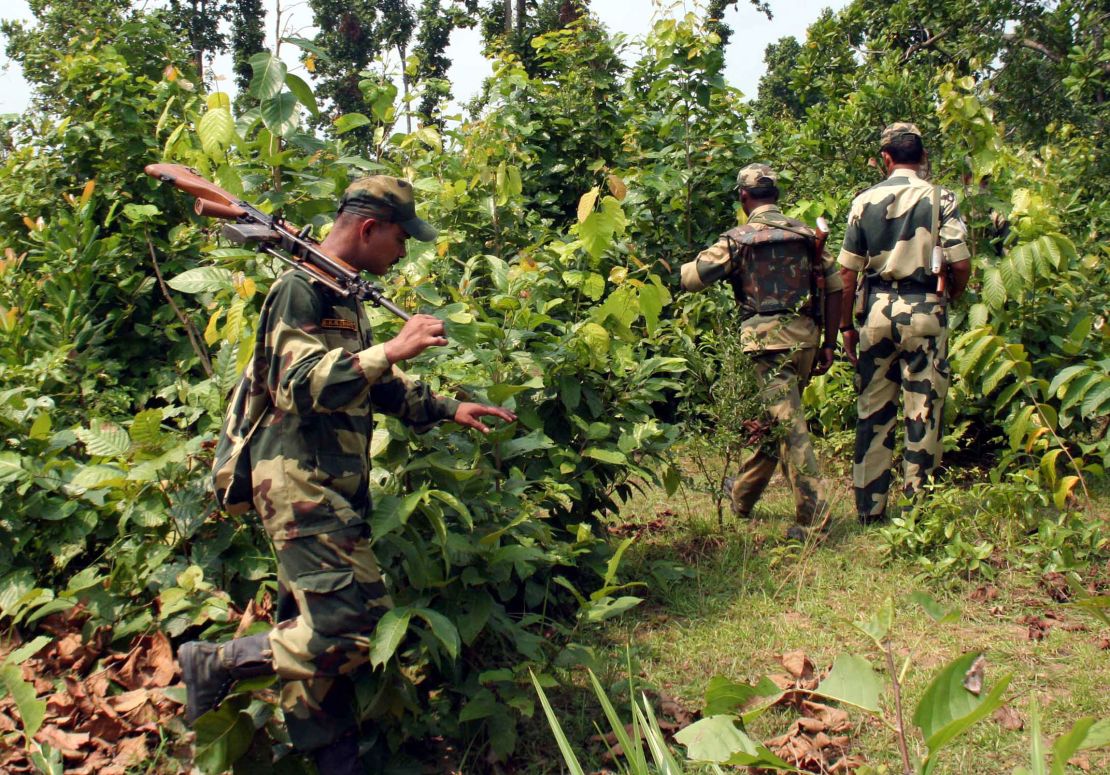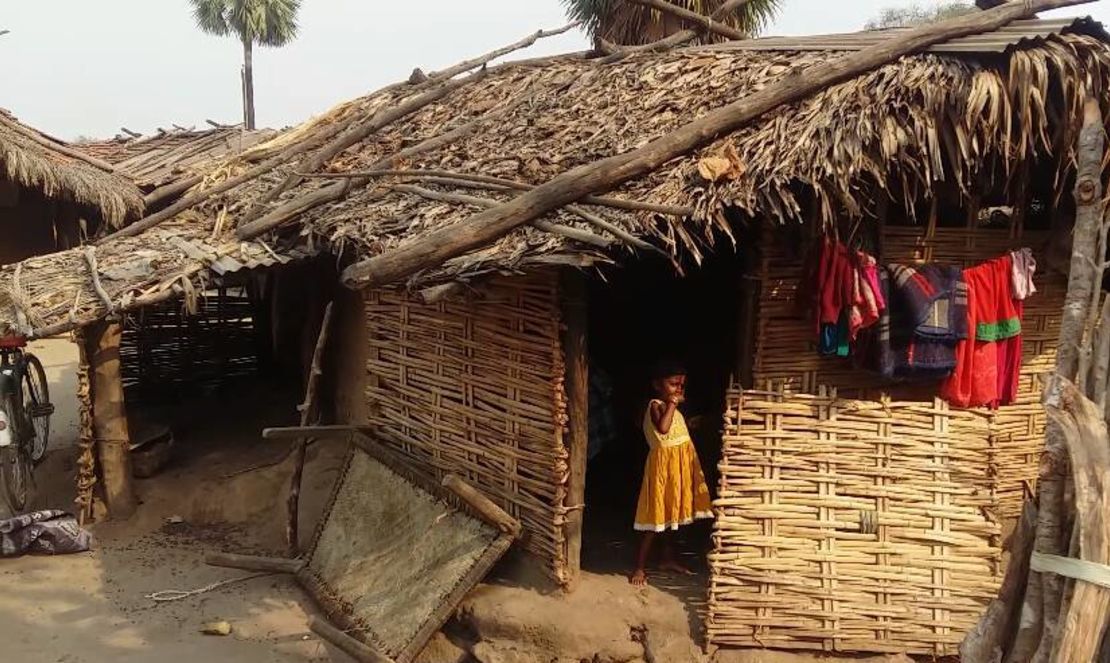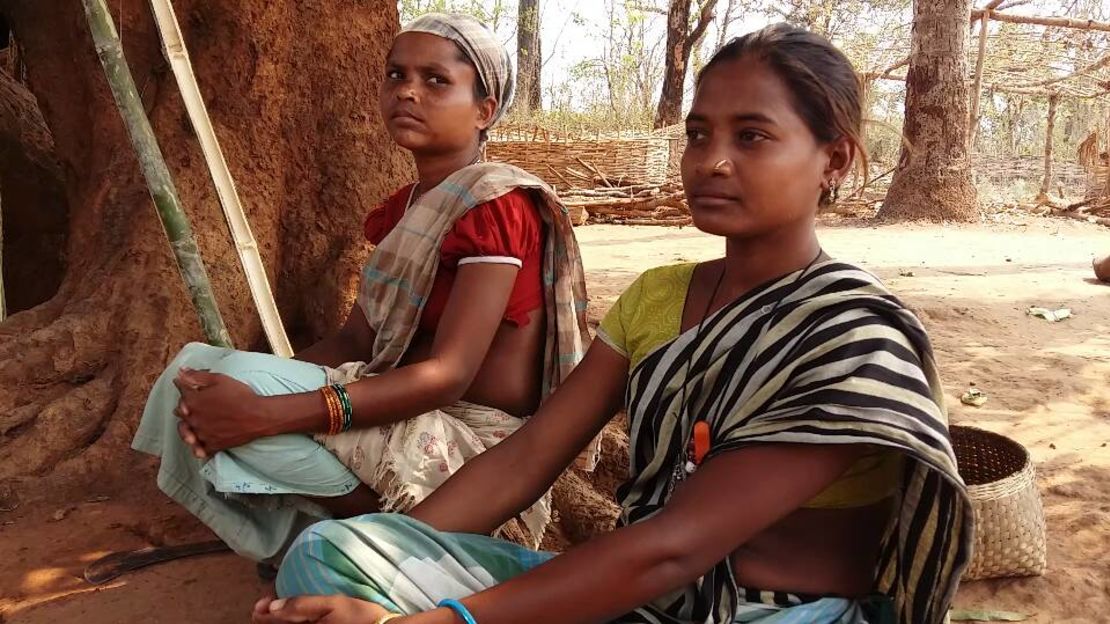Editor’s Note: Saurabh Sharma and Rishi Bhatnagar are members of 101Reporters, a pan-India network of grassroots reporters.
In central India, locals find themselves trapped in the middle of a decades-long conflict between Maoist rebels and the government.
More than 2,100 civilians have died in the past seven years, according to official figures, but for those who must live with it, the death toll doesn’t come close to describing their plight.
Maoist rebel groups – also known as Naxals – use the jungles of central India for their hideouts, from which they launch attacks on government forces in an attempt to overthrow the state and usher in a classless society.
Last week, at least 25 police officers were killed in an ambush in Chhattisgarh state’s Sukma district.
The area in which the Maoists are active is mainly populated by tribal peoples, some of the most deprived in the country. These villagers, cut off from India’s rapidly growing economy, live in fear of rebels taking their children as recruits, or of violent government raids.
Trapped
According to the New Delhi-based Institute for Conflict Management (ICM), Maoist groups are currently active in 156 districts of 13 states across India.
Former Indian Prime Minister Manmohan Singh once described Maoist rebels – who are well organized and trained – as the country’s “gravest internal security threat.”
While the insurgency has been ongoing since the 1960s, it saw a resurgence in recent years, to which the government has responded with a major security crackdown that has been criticized as heavy-handed and prone to abuse.

Villagers told CNN they are forced to pay taxes to the Maoists, or face abuse or even torture. But if they do pay up, they risk being labeled Maoist sympathizers by government forces, which could lead to sedition charges and a minimum three years behind bars – and even lifetime imprisonment.
“We are not humans. Neither to the army or for the Naxals,” said 45-year-old Suman Deva, who requested that his name be changed for fear of repercussions.
He said for villagers, both the police and the Maoists are predators, and them merely resources or informers. Villagers often do not have any choice but to offer food and shelter if rebels visit them, he said.
“Despite all the (promises of) help, tribals are subjected to harassment by the security forces,” Deva said. “Many of us have been accused of helping Naxals in their operations.”

Crackdown
A 2012 report by Human Rights Watch cataloged cases where police and soldiers “have arbitrarily arrested, detained, and tortured villagers, who are mostly from disaffected tribal communities.”
“There have been massive human rights abuses,” Nandini Sundar, a professor at Delhi University and author of “Burning Forest: India’s War in Bastar,” told CNN, pointing to reports of gang rape and theft by security forces.
Police in Chhattisgarh tasked with counter-insurgency operations have been accused of looting from and raping villagers by India’s National Human Rights Commission.
Lawyers and researchers looking into alleged human rights abuses have said they faced accusations of collaborating with Maoists and threats of violence.
“We had to leave Bastar in February 2016 after the police threatened our landlord and people working closely with us, all of these were unofficial and illegal,” said Shalini Gera of the Jagdalpur Legal Aid Group (JagLAG). “We have now moved to Bhilai, a major city 174 miles away from Bastar, but the threats and intimidation continues.”
Laxmi Devi, whose son is a Maoist rebel, said that police and security forces often raid her house, claiming to be operating on a tip-off.
“They come anytime and barge into our houses. They throw everything and then leave after slapping (and) assaulting us,” she said.
Sukma district police superintendent Abishek Meena said allegations that Indian soldiers and police molested or abused tribal villagers “are totally baseless,” adding that some cases involved false allegations intended to “brainwash” people against the government.
Earlier this year, the National Human Rights Commission issued a notice to the Chhattisgarh state government after it found that 16 women were apparently sexually and physically assaulted by police. And in 2015, an investigation was launched after security forces were accused of rape in a Maoist-dominated area of Chhattisgarh, according to the Hindustan Times.

Fertile ground
From 2010 to 2015, Maoist rebels killed around 2,100 civilians and 800 security force personnel in India, according to official figures.
The rebel groups are mainly active in underdeveloped and neglected regions of the country inhabited by tribal peoples, where there is often little effective government.
Ajai Sahni, executive director of the Delhi-based Institute for Conflict Management, said efforts have been made to improve development and administration in the tribal regions, with the hope that it would sap the Maoists’ ability to recruit.
Central India is a “fertile ground ideally placed for the rebel group to enter and win locals to their ‘cause’,” said Rahul Gopal, a former director general of police well known for leading anti-Maoist campaigns in eastern Maharashtra state.
Shyam Sundar, son-in-law of jailed Maoist leader Vijay Arya, said the security forces’ heavy-handed tactics drive youths to join the rebels.
The fear of abuse – or of being accused of sedition and thrown in jail – often means villagers have no one to turn to for help against the Maoists.
Deva told CNN that after last week’s attack in Chhattisgarh, residents fled deep into the jungle to escape both the police and the Maoists. There they have set up temporary camps, but most can’t imagine leaving home for good.
“I was born here and I will die here,” he said.
Kodi Shankar and Hitesh Sharma contributed to this report for CNN




